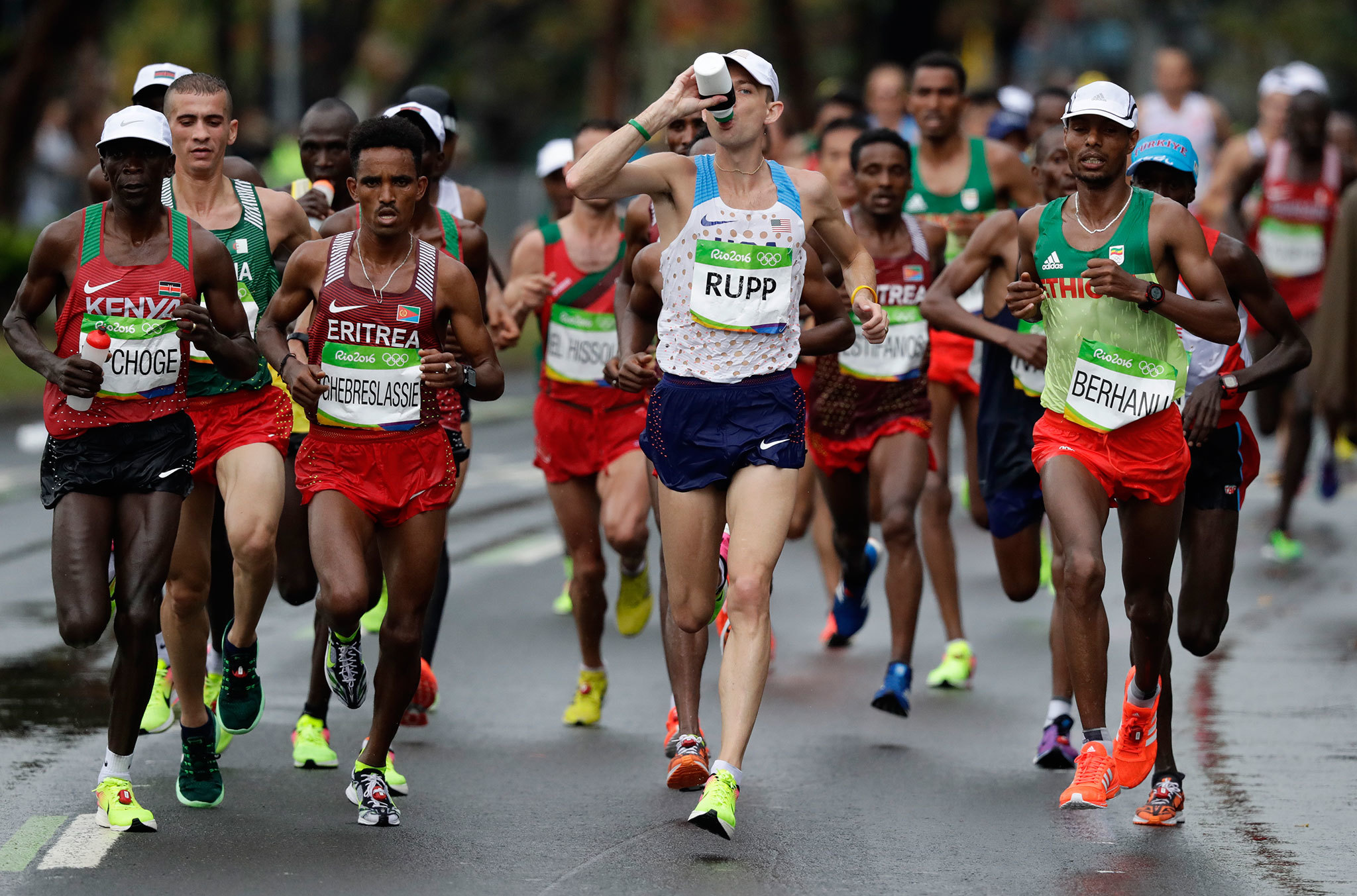By Barry Svrluga
The Washington Post
RIO DE JANEIRO — For two or three days last week, Galen Rupp couldn’t envision Sunday morning because he was so bitter about the previous Saturday night. Rupp is a distance runner, but there was the matter of what distances he should be running. He is perhaps better suited to be a marathoner, to run on the asphalt through a city. But he couldn’t — he wouldn’t — leave the track.
“The marathon, it’s a real special event,” Rupp said. “I don’t think I really truly understood that until I started doing them. … I definitely fought it a while, just being stubborn. Wanted to be a track runner. Thought I could do both.”
He tried to do both here, at these Olympics. Last Saturday night, he ran in the 10,000-meter race, the event in which he won silver four years ago in London. He finished fifth.
“I feel like I let a lot of people down,” he said.
At some point, though, that disappointment — which Rupp said he mixed with unhealthy doses of anger, “almost like a grieving process” — had to be pushed aside. Sunday was the marathon. Sunday was another opportunity.
“At some point you have to get over it,” Rupp said. “”You can’t dwell on things. You dwell on the past, it just ends up being such a negative thing.”
The glorious past of American distance running once seemed far off. But over the course of the Rio Olympics, there was a comeback — capped by Rupp’s own comeback from the devastation of his other event. Sunday morning, through the soggy Rio streets, Rupp won a bronze in the marathon, the sixth medal won by the United States in races of at least 1,500 meters.
“It’s fantastic,” said Alberto Salazar, the marathon legend who serves as Rupp’s coach. “It’s so exciting to see the U.S., the resurgence in distance running in this country. We’re back to where we were in the late ’70s or early ’80s, where Americans are competing to win medals again at all events.”
Rupp’s performance Sunday wasn’t without a significant amount of pain. He ran with the lead group tightly packed over the first half of the race, and after the 18-mile mark, he and two others, Kenya’s Eliod Kipchoge and Ethiopia’s Feyisa Lilesa, broke away. Rupp and Salazar expressed some relief that the risk they took in training for two vastly different races – the marathon is more than four times as longer- didn’t wash out his entire Olympics.
“You can always look back and say, ‘Well, if we hadn’t done [the marathon], would he have run better in the 10k and we should have done more speed work?” Salazar said. “But if we had done more speed work maybe he wouldn’t have run as well in the marathon. In the end, as long as you end up getting a bronze in one, you get a medal, then I know I didn’t screw it up completely.”
The three-man pack eventually strung out, with Kipchoge surging for gold in 2 hours, 8 minutes and 44 seconds. He left Lilesa more than a minute back, and though Rupp was constantly in touch with Lilesa – running constantly about 10 seconds behind – he couldn’t catch him.
“I was hurting,” Rupp said. “The last couple miles I felt like I was walking.”
The day would have been complete for the Americans with just that one medal. But there was a deeper satisfaction. Jared Ward finished sixth, reaffirming the depth that has developed for U.S. distance running. But then there was another sight: Meb Keflezighi stopping, starting, stopping, but running on.
“I’ve got to finish,” Keflezighi said he told himself. “I knew I was gonna finish no matter what – for our country, for our kids.”
If there is one figure who helped rebuild these grueling disciplines in the U.S., it might just be the 41-year-old who was born in Eritrea, but who has long lived in California. Keflezighi’s silver in the 2004 marathon in Athens was the first U.S. men’s marathon medal since 1976. He ran here not for a medal. He wanted, he said, “to run with the world.”
Even in finishing 33rd, Keflezighi couldn’t help but finish with one last flourish. Seven times after the midway point, he stopped, the victim of an upset stomach. He wanted to throw up, but couldn’t. He pressed forward, and approached the finish line waving to supporters, many of them Americans.
And then, with the road still wet from morning rains, he slipped, a full-on wipeout right at the finish line. His response: do three push-ups, and then get up, smiling.
“I guess I will be known for the epic finish there,” Keflezighi said.
But he will also be known for working with his coach, Bob Larsen, former Olympian Deena Kastor – who won a marathon bronze in Athens – and others to rebuild distance running back home. His role in that hit Keflezighi after his race.
“The tears says it all,” he said. “For me, the sport has done more than I could ever imagine, and God has given me more than I could ever envision for myself.”
In the middle of last week, Rupp couldn’t have envisioned what he pulled off Sunday. Perhaps an hour after the race’s conclusion, Rupp listened to his name blared through the Sambadrome Marques de Sapuci, the parade area built for Rio Carnival. When it was, he stepped up onto the medal stand, extended both hands skyward – and finished a week in which the present and future for American athletes who run long distances fundamentally changed, and for the better.
Talk to us
> Give us your news tips.
> Send us a letter to the editor.
> More Herald contact information.

























